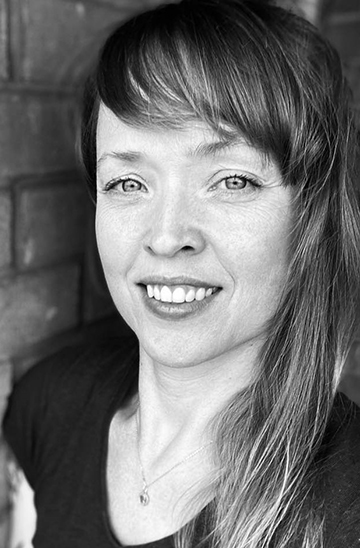KCC Ovations
KCC Professor Awarded $60,000 NEH Grant for Book on Children of the KKK

The National Endowment for the Humanities (NEH) awarded Kingsborough Community College history professor Elke Sabella $60,000 to write "Children of the Klan: Growing Up in the Southern Far Right 1950-1990," a book based on oral histories she gathered over a two-year period. It is one of 240 humanities projects across the country receiving a total of $37.5 million in grants, as well as one of the 25 projects in the 2024 Public Scholars category, which totals $1.4 million.
The NEH Public Scholars program offers grants to individual authors for research, writing, travel, and other activities leading to the creation and publication of well-researched nonfiction books in the humanities written for the broad public. This year’s grants will enable the publication of 25 new titles. Writers with or without an academic affiliation may apply, and no advanced degree is required. The program encourages non-academic writers to deepen their engagement with the humanities by strengthening the research underlying their books, and it encourages academic writers in the humanities to communicate the significance of their research to the broadest possible range of readers. NEH especially encourages applications from independent writers, researchers, scholars, and journalists
“Children of the Klan: Growing Up in the Southern Far Right 1950-1990” examines the segregationist movement's values and ideology through the eyes of the children who came up, in different ways, through the movement.
The book is an outgrowth of an oral history project about white supremacist families in the Southern United States, conducted between 2021 and 2023 under the auspices of a Mellon/ACLS fellowship that documented the experiences of 22 men and women born between 1939 and 1977 whose parents were members of or sympathizers with the Ku Klux Klan and/or the Citizens' Council during and after Jim Crow. Aimed at general audiences, not just those who identify as anti-racist, the book will offer readers unique access to stories that are rarely heard outside of closed circles.
"As a non-Southerner, I wanted to get a sense of what a Southern upbringing looked like and explore the differences and similarities between a racist and non-racist white upbringing in order to get as broad and balanced a perspective on Southern cultures and communities as possible," Sabella explained. “To that end, I also interviewed 10 people who grew up in communities that were hotbeds of Ku Klux Klan or Citizens’ Council activity but whose parents were not involved at all. Though my sample is not representative of a wider community of children of white supremacists, my findings will nonetheless resonate with many children who grew up in similar circumstances.”
Sabella also conducted extensive research at the Mississippi Department of Archives and History, the Mississippi Civil Rights Museum, and the Natchez Historical Foundation over the past two years, and found valuable resources online via the Louisiana State University Cold Case Project, FBI COINTELPRO, University of North Carolina J. Murrey Atkins Library, David and Barbara Pryor Center for Arkansas Oral and Visual History, University of North Carolina Southern Historical Collection, and the Library of Congress.
“My goal is to spark new and needed conversations about the historical and cultural roots, transmission, and present complexion of racist ideologies and cultures in the United States,” offered Sabella, who also serves as the director of the KCC Holocaust Center. “It is meant to assist people in their journeys away from racism while also fostering understanding for those who aren’t there yet.”
